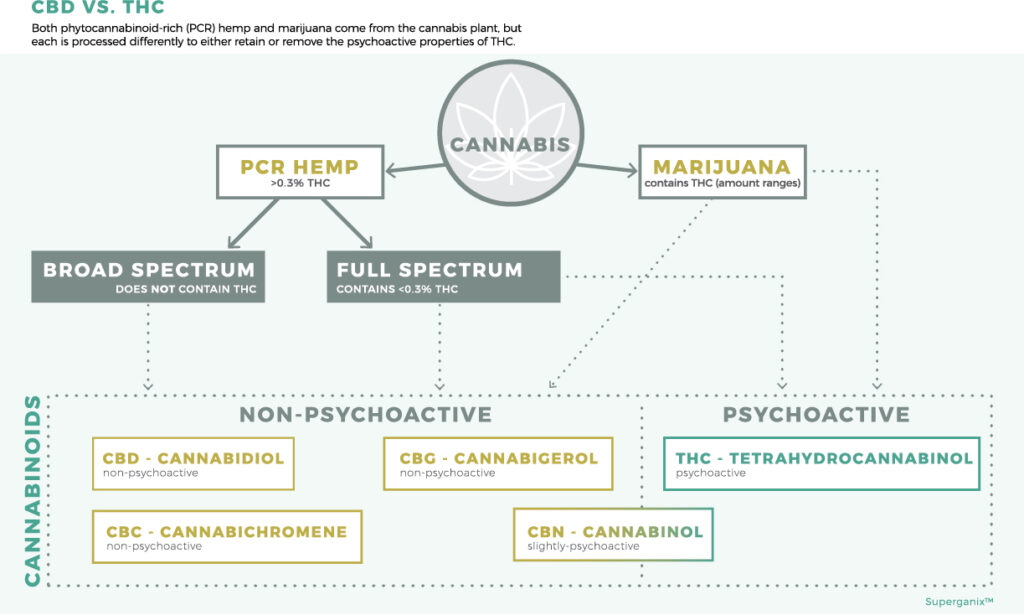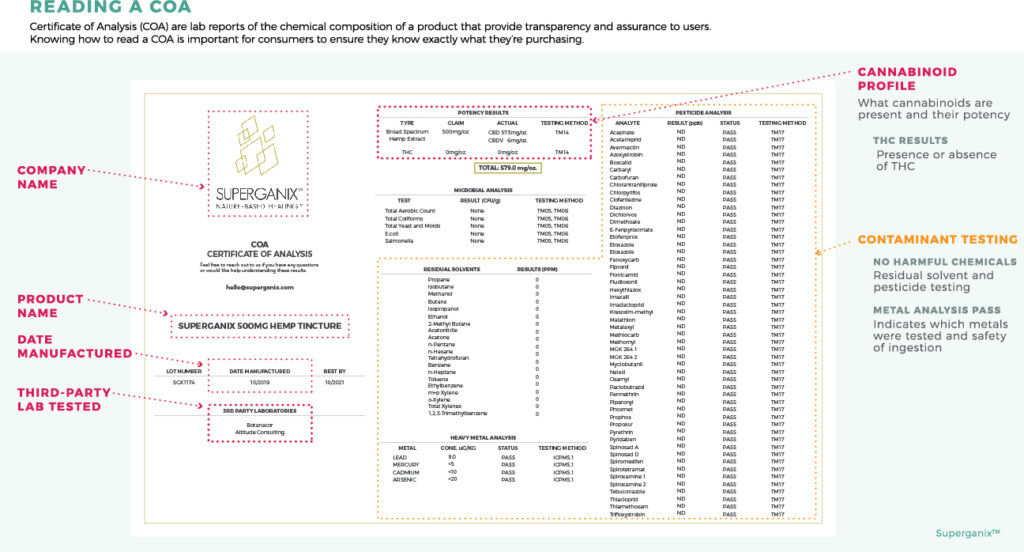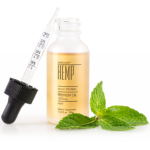What is Zero THC CBD? Can you fail a drug test due to CBD?
A big hang-up people may have with CBD is confusion over whether or not it is legal. This confusion stems from the fact that CBD is inherently connected to marijuana. While CBD also comes from the cannabis plant, which also produces marijuana, CBD is non-psychoactive and is legal to use.
Even though only 33 states have legalized marijuana, all 50 states have passed laws allowing the use of cannabidiol (CBD) with minimal tetrahydrocannabinol (THC).
While that’s certainly a good step in the right direction and can ease your mind a bit, there’s another lingering question regarding CBD: can you fail a drug test due to CBD?
The answer is: it can be a little complicated, but the solve to get a “no” answer is zero THC CBD. As the name suggests, zero THC CBD is CBD that has had all traces of THC removed. Consuming zero THC CBD gives you all the amazing anti-inflammatory benefits of CBD without the drug-test-fail risks of THC. This zero THC feature is found in both broad spectrum CBD products as well as CBD isolate products.
Many companies still do drug test their employees, and even if marijuana (see: THC) is legalized in your state, it may not be okay with your employer. It’s better to understand your employer’s drug testing requirements first, then use the information in this post to learn more about CBD and THC, and make the decision that will work best for you.
What Are CBD & THC?
Both Phytocannabinoid Rich (PCR) hemp and marijuana are derived from the cannabis plant, but each is processed differently to either retain or remove the psychoactive properties of THC. CBD and THC are two of the most prominent cannabinoids that come from the cannabis plant. CBD is found in both PCR hemp and marijuana varieties of the cannabis plant, while THC is primarily found in marijuana.
The main difference between THC and CBD is that THC is psychoactive, meaning it will get you high. CBD, on the other hand, is non-psychoactive, so you can consume all the CBD you’d like and never get high.
Most of the CBD oils out on the market come from the PCR hemp, which means that they contain less than 0.3% THC. There might be trace amounts of THC (less than 0.3%) in some CBD products, but it won’t be enough to get you high. Think of it like non-alcoholic beer — there could be a tiny bit of alcohol in O’Doul’s, but you won’t get drunk.
CBD products with minimal THC are legal in all 50 states, while THC is not quite there yet. CBD currently only has one product that is FDA-approved, while the others must be marketed as supplements.

Is There THC in CBD Products?
Some CBD products do contain trace amounts of THC in them. These are called full spectrum, as further detailed below. Generally, the level of THC is so low that you won’t notice any effect.
CBD oil products come in three forms: full spectrum, broad spectrum, and isolate.
Full Spectrum CBD
Full spectrum CBD, also called “whole plant” products, consist of all the elements of the cannabis plant. In addition to CBD, they contain flavonoids, natural fatty acids found in hemp, terpenes, and other cannabinoids such as CBG, CBN, and CBC. The big differentiator with full spectrum CBD products are that they also contain trace amounts of THC.
One thing to note here as well is that full spectrum oils tend to be slightly more effective due to the “entourage effect.” The entourage effect refers to how CBD works synergistically with the other cannabinoids, terpenes, and compounds found in the hemp plant, such as THC, to enhance the beneficial effects of the cannabinoids. Essentially, THC supports CBD to help it achieve its full potential.
It’s important to always read the label of your CBD products to see which type you are getting and to know whether or not it contains any THC.
Broad Spectrum CBD
Broad spectrum CBD contains all of the beneficial compounds found in PCR hemp (like other cannabinoids, terpenes, flavonoids, and other favorable components), but does not contain any THC. In a nutshell, it’s full spectrum without the THC.
It has been a popular choice for users that are concerned about THC in their system, regardless of how much or the local legality. Broad spectrum products offer a wonderful solution for people who want all the anti-inflammatory benefits without the whisper of THC on their shoulder.
CBD Isolate
CBD isolate is pure, raw CBD that’s synthesized in a lab. It contains no additional compounds (other cannabinoids, terpenes, flavonoids, etc.) other than CBD. Just CBD.
Are CBD Products Without THC Effective?
Absolutely, yes. The dosage may vary depending on the individual needs, but yes, broad spectrum products are peoples first choice when they want to steer clear of any THC. While full spectrum CBD products are generally considered the most effective because of the entourage effect, the level of THC will likely rule these products out for those who are required to do drug testing at work.
CBD isolate and broad spectrum CBD are also excellent options with different levels of efficacy depending on user. CBD isolate products may be the least impactful of the three, since they don’t contain the other beneficial cannabinoids, terpenes, and compounds from the hemp plant. Broad spectrum, as mentioned, has all of the powerful compounds and advantages of PCR hemp without the THC and is the preferred choice for many people.
CBD Products With No THC
Here’s how to tell if a product contains THC: read the label!
This means only purchase products from a well-known, trusted CBD brand that conducts third-party lab testing on its products. Don’t purchase CBD products from the farmer’s market or from a brand that does not mention lab testing to certify its levels of THC. If the product has not been lab-tested, you really won’t know how much CBD or THC the product contains.
And with regard to lab testing, the only way to really prove that a product has been tested is through a Certificate of Analysis (COA). Reading a COA can be complicated, but luckily you just need to know the key points you’re looking for in it. Here are some bullet points to follow:
For the formal information, make sure:
- it was prepared for the company selling the product
- the name of the product matches what’s on the COA
- the manufacture date is recent
- the Third-Party Lab that conducted the test is a different name than the company selling the product, ensuring that it was third-party tested
In the potency section, look for:
- the cannabinoid profile – how much CBD is actually in the product
- which cannabinoids it contains and that it’s the ones you want
- THC, make sure it is under 0.3% or at 0%
For the contaminant testing. make sure:
- there are no harmful chemicals via the residual solvents and pesticides results
- it was tested for metals and passes for safety of ingestion

CBD Isolate vs. Broad Spectrum CBD vs. Full Spectrum CBD – Which Is Best?
If you’re trying to avoid THC, as mentioned above, you’ll want to look for products that are either CBD isolate or broad spectrum CBD. These CBD products will be free of all trace amounts of THC and therefore will not produce a positive THC drug test result.
Broad spectrum 0% THC CBD oil products will offer the best option for those who want to take full advantage of all of the other goodness the hemp plant has to offer with zero THC. CBD isolate can also be a good option for those who prefer products free of THC with the benefits of CBD, but they won’t have any other supporting cannabinoids than CBD to offer. Since full spectrum CBD products contain THC, even in small amounts, it’s best to stay away if you’re going to be drug tested just to be on the safe side.
Side note: It’s also generally considered best to avoid CBD products if you’re pregnant. Until further research is completed to confirm or deny, sorry, moms to be, hold out a little longer!
CBD May Turn Into THC In Our Bodies
At one point there was consideration that CBD could potentially turn into THC in your body, but, a more recent test has debunked this conversion theory.
Can You Fail A Drug Test Due To CBD?
Many people have implemented CBD supplements into their daily health regimen, but apprehension over company drug testing or beginning a new job may make you anxious to do so as well.
First. you need to understand the type of drug test you are required to take. Some very uncommon drug tests may search for all cannabinoids, meaning you would most likely test positive for CBD if you’ve been taking it. However, most tests are focused on THC and other substances. Once you have better knowledge on what is being tested, you can make your own decision on beginning or continuing the addition of CBD to your personal health routine.
The U.S. Department of Health and Human Services has set a limit of 50/mg/ml of THC to cause a failed drug test. For most people, it’s not worth having even traces of THC in their system, no matter how low, so if you’re worried about failing a drug test due to THC, broad spectrum products are your best bet.
If the test is solely for THC and other substances and you’re taking a zero THC CBD products, meaning a broad spectrum CBD or CBD isolate, then rest assured, you will not test positive for THC. To reiterate, just CBD in your system should not cause you to fail a drug test. If you do happen to fail, it will be due to THC or another non-permitted substance in your system.
Summary
If you’re concerned about THC in your system, your safest course of action is to use CBD products that contain zero THC. Superganix™ products are third-party lab tested and refined through THC remediation. Our broad spectrum oils, creams, and balms are 100% Organic, made in the USA, and 0% THC CBD.
Written by Superganix™.

